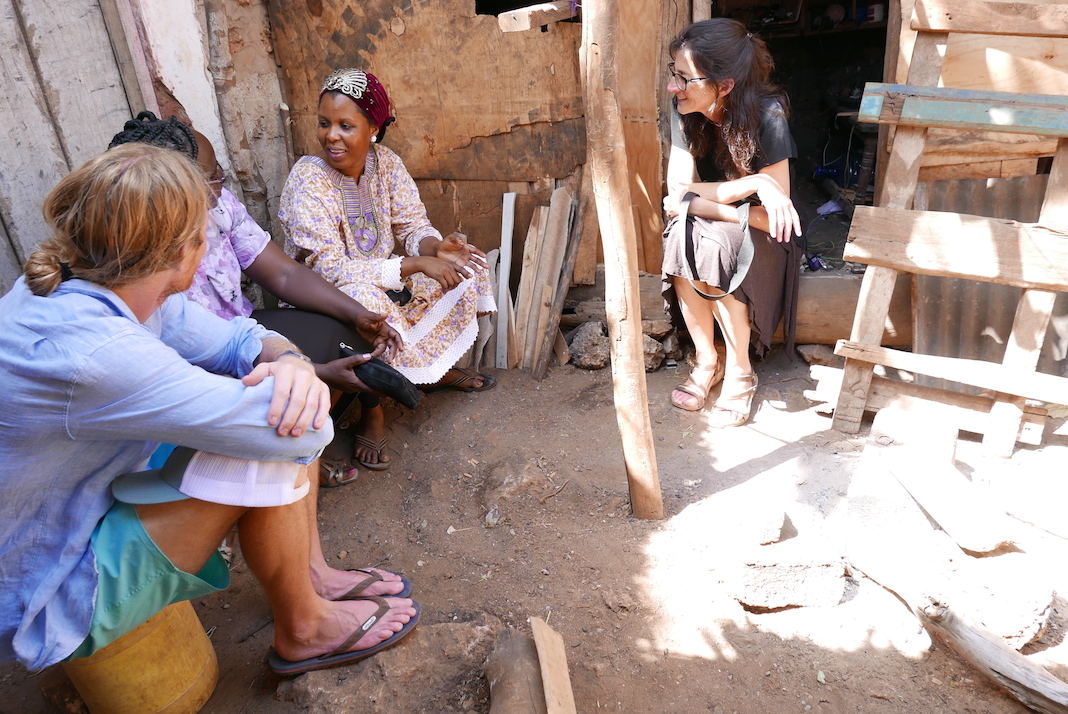Although she had been feeding fish to her children already, Matunda Said now gives them even more of this nutrient-rich food. Packed with long-chain fatty acids and other nutrients, fish can be a critical source of nutrients linked to improved brain development in young children.
Said is a 34-year-old mother of two, who lives in Kilifi county near the Kenyan coast. She has a 3-year-old daughter and a 5-year-old son. Also a businesswoman, she cooks and sells mandazi donuts and is a salonist in the area. Said is busy, but these extra jobs provide income so that she can buy food for herself and her family, such as the fish she buys at local shops or from her neighbor who is a fish trader.
“For now, I can still afford fish because my family is small,” said Said. Said is one of many who incorporate fish into their families’ diets, but encouraging young children to eat fish and fish products can sometimes be a challenge. Boiled fish is a typical preparation in Kilifi county but often not one that children find appetizing. To overcome this challenge, Said offers her children fried or dried fish, which she then serves with vegetables or in a coconut stew.
Although Kenya has made strides in improving nutrition and reducing stunting in young children, regions of the country, such as Kilifi county, and vulnerable populations still suffer. Along the coast, in Kilifi, stunting rates reach as high as 40% among children under the age of five. This is much higher than the national rate of 26%. Dietary diversity also is low, placing children at risk of consuming inadequate micronutrients needed for growth and brain development.
To address these persistent needs, the SecureFish team at the Feed the Future Innovation Lab for Fish (Fish Innovation Lab) is conducting research for development in the area to improve nutritional outcomes for the region, especially its young children.
Said attended a presentation by these researchers about the benefits of fish and noted she learned a lot that could be directly applied to her family.
“Initially I was giving fish [to my children] two to three times per week, but now that I know the benefits of fish, especially for brain development, I will increase to four to six times per week,” said Said.
Fish is a diet staple in this part of Kenya, but the SecureFish team, led by Lora Iannotti of Washington University in St. Louis in the United States and Andrew Wamukota of Pwani University in Kenya, has found that families often reserve the fish, especially the most nutritious parts of the fish, such as the head, for the adult men in their households.
Said noted that before the presentation, “I did not think it was okay to give the head of the fish to the children,” but that she now will incorporate this nutrient-dense part of the fish in her children’s meals.
The SecureFish team and the Fish Innovation Lab continue to conduct research and outreach with caregivers, health professionals, and fishers in Kilifi county to share knowledge and resources that can help mothers and communities improve nutritional outcomes for themselves and their families. You can follow along with this work on the Fish Innovation Lab website.
